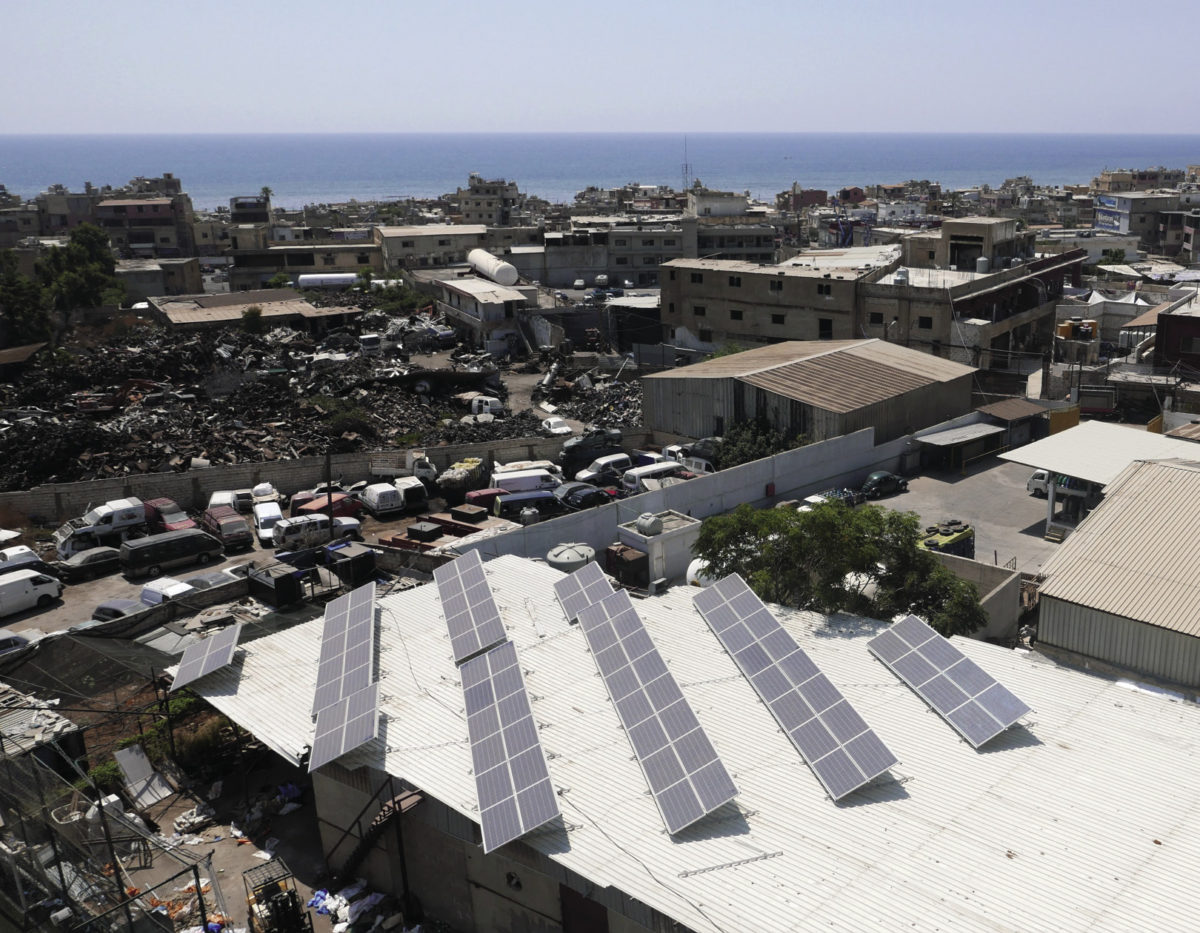Lebanon’s Ministry of Energy and Water has signed PPAs for 165 MW of solar it selected in a PV tender that was launched several years ago. The process to tender 180 MW of PV capacity spread across 12 projects started several years ago, and initially attracted 42 applications.
In 2019, the ministry published a shortlist of 28 applicants. Last year, the government issued licenses to 11 successful projects, spread across four main regions: Bekaa (including the provinces of Bekaa and Baalbek-Hermel), Mount Lebanon, South (the provinces of South Lebanon and Nabatiyeh), and North (including North Lebanon and Akkar).
The tender design allowed the government to negotiate different tariffs for each of the four tender regions. For Bekaa specifically, which is the sunniest of the four regions, one investor bid $0.057/kWh, so all three 15 MW farms had to accept that tariff. Projects in the other three regions will receive a tariff of $0.0627/kWh, valid for 25 years from their commercial operation dates.
These prices have been known since 2021, “but may be changed down the road,” Gabriel De Lastours, the regional head of the European Bank for Reconstruction and Development (EBRD), told pv magazine.
The lengthy tender process is mainly attributed to Lebanon's severe and persistent financial and political crisis, raising doubts about the bankability of the 11 recently signed power purchase agreements (PPAs) and the ability of investors to achieve financial closure.
“The availability of international debt financing will depend on the implementation of structural reforms,” commented De Lastours, adding that “we [the EBRD] believe that the sovereign risk will remain a challenge.”
De Lastours mentioned that the bank is collaborating with the government and stakeholders from all sectors to create an innovative framework that tackles the heightened sovereign risk associated with the power purchase agreements (PPAs). Despite this, he emphasized that the recent signing of the 11 PPAs is a significant achievement, as it builds upon successful regional examples and the extensive efforts of the Ministry of Energy, supported by international experts and financial institutions like the EBRD, during the 2017-2020 period for wind projects.
Building upon the 20-year PPAs signed in 2018 for three wind farms in Akkar with a combined capacity of 226 MW, De Lastours expressed the EBRD's commitment to collaborating with the Lebanese government in enhancing the bankability of the PPAs.
Lebanon aims to source 30% of its electricity and heat from renewable sources by 2030, and the recent signing of the 11 solar PPAs marks the country's initial foray into utility-scale solar development.
This content is protected by copyright and may not be reused. If you want to cooperate with us and would like to reuse some of our content, please contact: editors@pv-magazine.com.



2 comments
By submitting this form you agree to pv magazine using your data for the purposes of publishing your comment.
Your personal data will only be disclosed or otherwise transmitted to third parties for the purposes of spam filtering or if this is necessary for technical maintenance of the website. Any other transfer to third parties will not take place unless this is justified on the basis of applicable data protection regulations or if pv magazine is legally obliged to do so.
You may revoke this consent at any time with effect for the future, in which case your personal data will be deleted immediately. Otherwise, your data will be deleted if pv magazine has processed your request or the purpose of data storage is fulfilled.
Further information on data privacy can be found in our Data Protection Policy.